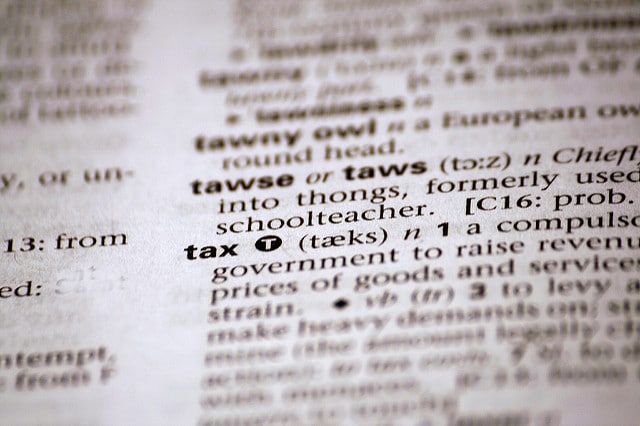When Member States act as regulators they need not maximise revenue from the granting of concessions rights. When Member States act as regulators they must grant concession rights on the basis of procedures which are competitive, transparent, non-discriminatory and unconditional. Introduction Is it possible for a public authority to grant State aid through a defective procurement procedure? The answer […]
State Aid Law
Blog
State Aid Uncovered Blog
In Lexxion’s State Aid Uncovered blog, Prof. Phedon Nicolaides publishes weekly critical analyses of recent State aid judgments and decisions. Each post presents the key points of a court judgment or EU Commission decision, places it in the context of similar case law or practice, assesses the underlying reasoning and highlights any inconsistencies or contradictions.
Guest contributions from other State aid experts will also be published on the blog at irregular intervals to complement the content of the blog posts.
27. December 2017 |
State Aid Uncovered
by Phedon Nicolaides
21. December 2017 |
State Aid Uncovered
by Lexxion Publisher
Questions around grants for R&D&I projects, economic activities of religious establishments or concession agreements besides many more, have moved and shaped this year’s judgments on State aid. Also Brexit and its meaning for State aid control in the UK has been on everyone’s mind. See which articles by Prof. Phedon Nicolaides were the most popular ones in 2017. We have […]
19. December 2017 |
State Aid Uncovered
by Phedon Nicolaides
State aid has a purely local impact when i) the beneficiaries supply goods or services to a limited area within a Member State, ii) they are unlikely to attract customers from other Member States and iii) there is no inducement for cross-border investment or establishment. Introduction The article this week continues with the theme of affectation of trade that […]
12. December 2017 |
State Aid Uncovered
by Phedon Nicolaides
Article 107(1) requires the assessment of both the direct and indirect impact of a public measure on cross-border trade. The direct impact is the effect on the cross-border movement of products or customers of the aid recipient or of its competitors. The indirect impact is the effect on the cross-border movement of the aid recipient itself or its competitors. […]
5. December 2017 |
State Aid Uncovered
by Phedon Nicolaides
The fact that the state owns an undertaking is not enough to prove that the decisions of that undertaking can be attributed to the state. However, it is sufficient that the state was involved in the particular decision that transferred state resources for the benefit of another undertaking. Introduction Several recent articles on this blog have examined the concept […]
30. November 2017 |
State Aid Uncovered
by Phedon Nicolaides
The European Commission may withdraw a decision, but before it adopts a new decision it must give an opportunity to interested parties to submit their comments, especially, if it changes the legal basis of the assessment of the compatibility of the aid. Introduction The most frequent reasons for which the Commission finds aid to be incompatible with the internal […]
21. November 2017 |
State Aid Uncovered
by Phedon Nicolaides
Private resources that come under the control of a public authority become state resources. The only defence for not recovering incompatible aid is absolute impossibility. Agricultural policy objectives take precedence over those of competition policy. Introduction This article reviews a case involving transfer of state resources and a case concerning failure to recovery of incompatible State aid. It also draws […]
14. November 2017 |
State Aid Uncovered
by Phedon Nicolaides
Any alteration of an existing aid measure can affect the substance of the measure itself. A deviation from the conditions of authorisation may turn existing aid into new aid. Alteration or deviation from the conditions of authorisation that affect the compatibility of an existing aid measure, can result in the granting of new aid. A Member State that alters an […]
7. November 2017 |
State Aid Uncovered
by Phedon Nicolaides
The prohibition of State aid in Article 107(1) of the Treaty applies both to the direct and indirect beneficiaries of aid. The direct and indirect beneficiaries are those who are intentionally targeted by the aid. Secondary effects are benefits which are inherent in an aid measure and which are not targeted at specific undertakings. Introduction Public funding for the […]
1. November 2017 |
State Aid Uncovered
by Phedon Nicolaides
Economic activities which cannot be separated from the exercise of public powers cease to be economic in nature. Introduction The dividing line between economic and non-economic activities is in a permanent state of flux. Although it is now clear that some activities fall within the powers and prerogatives of the state, while many others are carried out by the […]
29. May 2017 |
State Aid Uncovered
by Phedon Nicolaides
The compulsory nature of an assigned public mission makes the services covered by the mission different from those provided by market operators for profit. Introduction The justification of government intervention for the purpose of ensuring delivery of adequate services of general economic interest [SGEI] and the design of measures that compensate providers of SGEI can be very tricky. This […]
23. May 2017 |
State Aid Uncovered
by Phedon Nicolaides
Fees charged by operators to users of infrastructure must cover all relevant costs. The relevant costs are those which are causally linked to the agreements between users and operators. Introduction The rules in the Treaty on the Functioning of the European Union are neutral in their treatment of private or state-owned companies [Article 345 TFEU]. This means that companies cannot […]
16. May 2017 |
State Aid Uncovered
by Phedon Nicolaides
A company that applies for State aid is considered to acquire a right to that aid when assurances it has received from the granting authority can be enforced in court. The price of land can be reduced by the cost that a new owner would expend to make the land usable. Introduction In decision SA.40448, the Commission assessed aid […]
9. May 2017 |
State Aid Uncovered
by Phedon Nicolaides
Insurance funds contributed by banks become state resources if they are managed by public agencies. Sale of non-performing loans at market prices does not involve State aid. Introduction Since 1 January 2016, the resolution financial institutions in Europe has been subject to stricter rules. The institutions which are established in the Eurozone fall with the jurisdiction of the Single […]
3. May 2017 |
State Aid Uncovered
by Phedon Nicolaides
Turnover taxes should be levied at a single rate. Introduction This is the fourth case involving turnover taxes that have been declared to be incompatible with the internal market [see Commission decision 2017/329].[1] A brief summary was published here on 13 December 2016 [http://stateaidhub.eu/blogs/stateaiduncovered/post/7697]. The reasoning of the Commission follows closely that of the other cases. However, what makes this case […]
26. April 2017 |
State Aid Uncovered
by Phedon Nicolaides
A short note on the previous blog post on State aid control in the UK after its withdrawal from the EU. A few weeks ago, I wrote an article on State aid control in the UK after its withdrawal from the European Union [http://stateaidhub.eu/blogs/stateaiduncovered/post/8330]. In that article I suggested that the UK would maintain the same or a similar […]
25. April 2017 |
State Aid Uncovered
by Phedon Nicolaides
A nominal price may be charged for genuine non-economic services as long as it supports the achievement of the non-economic objective and covers only a small part of total costs. Introduction Germany notified two measures of support for nature conservation in Saxony-Anhalt. Measure 1 [SA.45645] concerned projects of nature conservation and landscape maintenance.[1] Measure 2 [SA.46073] concerned aid to associations […]
18. April 2017 |
State Aid Uncovered
by Phedon Nicolaides
Compliance with public service obligations imposed on a provider of services of general economic interest should not be left to the discretion of that provider. Introduction Last week’s article examined a public service obligation for providing maritime links to Corsica (view it here: http://stateaidhub.eu/blogs/stateaiduncovered/post/8370). This week’s article reviews a similar obligation for maritime links to the neighbouring island of Sardinia. […]
11. April 2017 |
State Aid Uncovered
by Phedon Nicolaides
The scope of public service obligations must be proportional to the identified market failure. Introduction On 1 March 2017, the General Court dismissed the application of Societe Nationale Maritime Corse Mediterranee [SNCM] against the Commission [case T-454/13, SNCM v Commission].[1] The Commission had found in decision 2013/435 that SNCM received incompatible State aid that had to be recovered. SNCM carried […]
4. April 2017 |
State Aid Uncovered
by Phedon Nicolaides
The UK will “take back control” over State aid. With it will come the challenge of following EU law and practice. Introduction Last June I wrote an article on how the withdrawal of the UK from the EU could affect the application of State aid rules in the UK. The article concluded with the following prediction. “The UK will soon […]























